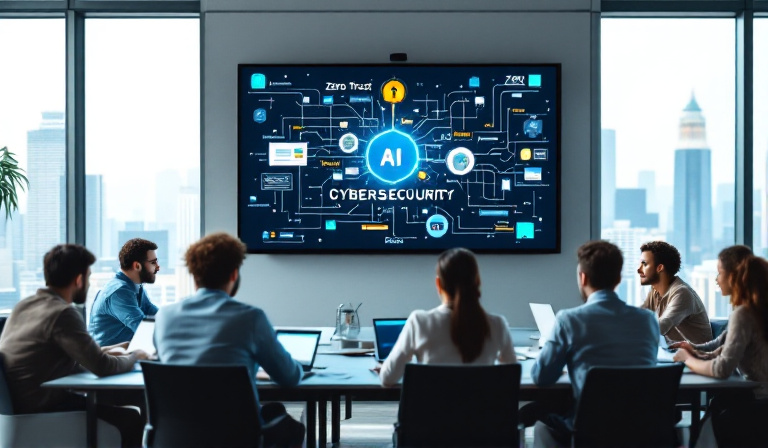
In a world where technology is deeply embedded in our everyday lives, security has become a paramount concern for individuals and organizations alike. From safeguarding personal data to protecting corporate assets, security questions often arise. To address these concerns, we have gathered insights from industry leaders, providing you with practical advice and strategies to enhance your security posture.
Understanding the Basics of Security
Before diving into advanced security measures, it's crucial to understand the basics. Security encompasses a range of practices designed to protect information, systems, and networks from unauthorized access and attacks. These measures are essential for ensuring confidentiality, integrity, and availability of data.
Industry experts emphasize the importance of a layered approach to security, often referred to as 'defense in depth.' This strategy involves using multiple security controls to protect different layers of your IT infrastructure. From firewalls and intrusion detection systems to encryption and access controls, each layer acts as a barrier against potential threats.
Common Security Questions Answered
1. How Can I Protect My Personal Information Online?
Protecting personal information online starts with being mindful of what you share. Industry leaders recommend the following key practices:
- Use Strong, Unique Passwords: Create complex passwords using a combination of letters, numbers, and symbols. Avoid using the same password across multiple sites.
- Enable Two-Factor Authentication (2FA): Adding an extra layer of security, such as a text message or authentication app, ensures that even if your password is compromised, your account remains secure.
- Be Wary of Phishing Scams: Be cautious of emails or messages requesting personal information. Verify the source before clicking on any links or downloading attachments.
2. What Steps Should Businesses Take to Secure Their Networks?
For businesses, securing networks is a critical component of protecting sensitive data. Here are some strategies recommended by security experts:
- Conduct Regular Security Audits: Regularly evaluate your network for vulnerabilities and implement necessary patches and updates.
- Implement Network Segmentation: Divide your network into segments to control access and minimize the impact of a potential breach.
- Deploy Advanced Threat Detection Systems: Use tools that can identify and respond to threats in real-time, reducing the window of opportunity for attackers.
3. How Can I Ensure My Devices Are Secure?
With the proliferation of smart devices, securing them is more important than ever. Here's what industry leaders suggest:
- Keep Software Updated: Ensure all devices run the latest software to protect against known vulnerabilities.
- Use Secure Networks: Avoid using public Wi-Fi for sensitive transactions. Consider using a Virtual Private Network (VPN) for added security.
- Enable Device Encryption: Encrypt your devices to protect stored data from unauthorized access.
Advanced Security Practices
1. Embracing Zero Trust Architecture
The Zero Trust model is gaining traction among industry leaders. This approach assumes that threats can originate from inside and outside the network, and therefore, no user or device is automatically trusted. Implementing Zero Trust involves continuous verification of user identities and device integrity, minimizing risk exposure.
2. Leveraging Artificial Intelligence in Cybersecurity
Artificial Intelligence (AI) is revolutionizing cybersecurity by providing advanced threat detection and response capabilities. AI systems can analyze vast amounts of data to identify patterns and anomalies indicative of a security threat, allowing organizations to act swiftly and effectively.
Protecting Against Emerging Threats
As technology evolves, so do the threats. Industry leaders emphasize the importance of staying informed about emerging threats and adapting security strategies accordingly. This includes monitoring threat intelligence feeds, participating in cybersecurity forums, and investing in employee training programs to build a security-conscious culture.
Conclusion
Security is an ongoing journey that requires vigilance, adaptability, and a proactive mindset. By implementing the advice and strategies shared by industry leaders, you can significantly enhance your security posture and protect your personal and organizational assets from potential threats. Remember, security is not just an IT concern but a collective responsibility that involves everyone from individuals to senior executives.

